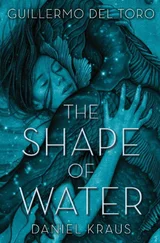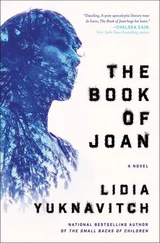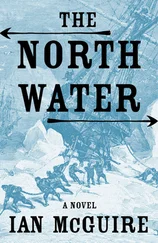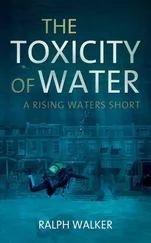Sometimes I’d just stand at the top of the blue carpet stairs and look down into the throat of them wishing I could see her, and I’d lift my foot up to take a step and immediately feel VERTIGO, and then with a little wistful sigh and my throat knotting up I’d give up. Even if I ventured half way down the stairs solo, I’d start to get light headed and the skin on my chest would heat up. I’d hold the railing for dear life and say her name into space. Hoping she would come retrieve me.
If I made it down the stairs alone to the beginning of the horror hallway — a hallway with NO LIGHTS — the only way I could get to her was to close my eyes as tight as my fists, hold my breath, and sprint. . always arriving at the light of her door letting out this sad little breathy MAAAARRRR sound. How I managed not to hit a wall I don’t know.
But in her room. Being in her room was like being inside a painting. Our grandmother’s hand-stitched quilts with the colors of the seasons spread out across her bed. Music and books and candles and wooden boxes with jewelry or shells or feathers in them. Incense and brushes and combs and dried flowers. Paint brushes and big squares of paper and drawing pencils. Velvet dresses and leather moccasins and jeans with legs shaped like big As. A guitar. A recorder. A record player. With speakers.
In her room you would never know the torture pit of the laundry room was three feet away.
She’d let me get in bed with her, and we’d move around under the covers, our body heat remaking a womb. “ Watercolor covers,” she’d say, and I’d nearly hippoventate with pleasure. Sometimes I held my breath or made little repetitive circles between my fingers and thumbs. Smiling like a giddy little troll. Girl skin smell making me high.
Getting back upstairs was nothing, because she’d escort me, and I’d be back in the upperworld of things.
What an imaginative leap she made to leave us and live down there that year. How much I didn’t understand where the danger lived.
When my sister was in high school we got a phone call. My sister was underneath a table in the Art Lab, telling her art teacher Baudette very calmly but with complete certainty that she was not going home.
Ever.
My parents had to go see the officials at the school, and the art teacher, Baudette, who my sister had made into her better family, explained to my ding headed mother that my sister couldn’t be around my father. That mandatory counseling sessions would happen. I thought her teacher’s names were magical. Mr. Foubert. Mr. Saari. Baudette. I sat in the corner of the school office eating a little piece of paper trying not to cry.
I still remember the counselor’s name. Dr. Akudagawa. I remember how I had to stay with friends of my parents when the three of them abandoned me for sessions. How my father never went into the basement. How she rarely came up.
How my sister got closer and closer to the final act of leaving for college: exeunt daughter, stage left.
How my father’s rage came to live in the house for good.
How I would be what was left of her, when she gave me a piece of her hair as a keepsake.
How my father’s eyes would turn.
This is Not About my Sister
THIS BOOK IS NOT ABOUT MY SISTER. BUT IF IT WERE, I’d tell you again that for two years before she could leave our Oedipal household she carried razor blades in her purse.
I’d tell you how her colon was irrevocably messed up — how as a child I sat in the bathroom with her and held her hand every time she tried to poo. How she squeezed my little girl hand so tight I thought it might be crushed. Because it hurt that bad to shit.
I’d tell you how she was born with a wandering eye, and what the Dr. who later delivered me wrote about what that might mean for infants like her — how to watch for it as a sign of danger in a child. How fathers or uncles or grandfathers might have had a hand in this particular kind of eye disorder — in certain sexual abuse cases — a penis coming too close to the still developing eyes of a child.
I’d tell you how, in the end, my sister replaced my mother and father in my mind and heart, how we created a union of survival that means we are both still alive.
If this book were about my sister, I’d tell you how she lived past daughter.
And I’d show you a picture.
A Simca station wagon. Maybe white. Maybe wood paneling.
My father loved the Northwest. He loved to explore the mountains and rivers and lakes. He loved to fish and camp and hike. But his wife had a misshapen leg not good for walking and he had two daughters instead of sons, so his disappointment always came with us everywhere we went. We could never hike far enough. Never carry enough weight. Never go as deeply into the wilderness. We couldn’t fish right. We had to pee sitting down and we needed toilet paper. A crippled wife and two daughters. We couldn’t even breathe right. Ever.
The Christmas I was four and my sister was 12 we drove and drove. From I-5 to Puyallup. Past Enumclaw. East on highway 7 to Elbe. Onto Highway 706 east through Ashford to Alexander’s. Then there is the entrance to Mt. Rainier National Park. I have driven it many times as an adult. That’s how I remember the path. Or so I tell myself.
But what I remember then is how bright the sun shone on the white — like an overexposed winter everywhere. How we got out of the car and made a snowman — my sister and my father and I. How we decorated the snowman with plastic Easter eggs that were in the car. How my mother laughed and wore her sunglasses and sat on the tailgate.
But too I remember my father’s voice when we drove fur — ther, and I fell asleep, and my sister began to read a book: “ What are you two doing, playing with yourselves? I bring you through the most beautiful scenery in the world and you are playing grab-ass? LOOK OUT THE GODDAMN WINDOW.” So we did. Silently. The side of my sister’s face looked as if it was made of stone. My ears burned.
We were dressed for our front yard — for maybe snowball fights with neighbor kids or going sledding. Running inside for new socks and hot chocolate. We had no food or water or blankets or radio or anything. Except a half finished plaid thermos of coffee. And matches. Both of my parents chain-smoked. My sister and I by this point were used to riding in the car like prisoners. Our father drove us to Mt. Rainier to get a tree. A goddamn tree. In the beautiful goddamn northwest.
The place we stopped to get the tree to me looked like the middle of nowhere. The “road” filled with more and more snow. The drive became steep — switchbacks and a permanent tilt to the Simca station wagon that kept my head pinned to the back seat. The heater in the car blew full blast. On the sides of the barely there road enormous evergreens and firs rose up like giant snow covered sentries. Beautiful but vaguely ominous. To me anyway. I couldn’t crane my neck hard enough to see the tops. Where he pulled over the trees were enormous. I remember wondering how we’d drag one back to our house … with a giant rope?
Where my father pulled over and stopped the car, my mother said, “ Mike?”
My father didn’t say anything. He simply made ready to get out of the car. So the little women followed him.
My mother wore a wool lined long gray raincoat with a faux fur raccoon collar and gold metal fasteners. Pointy movie star sunglasses. Her hair in a bun wrapped and wrapped on her head. Red lipstick. My sister wore a light ski jacket and red pants and a white fake fur hat with snowball ties and cotton kid gloves and black rubber K-Mart boots. I wore red corduroy pants and a smaller brown version of my sister’s hat with the pom pom ties and red galoshes and black cotton gloves — I remember our red pants because they stood out so in the snow. Like blood and urine do. And my mother made them. My father wore jeans and a fleece lined suede jacket and blond leather gloves. He pulled a handsaw from the back of the station wagon. And a rope. And my sister’s hand.
Читать дальше












